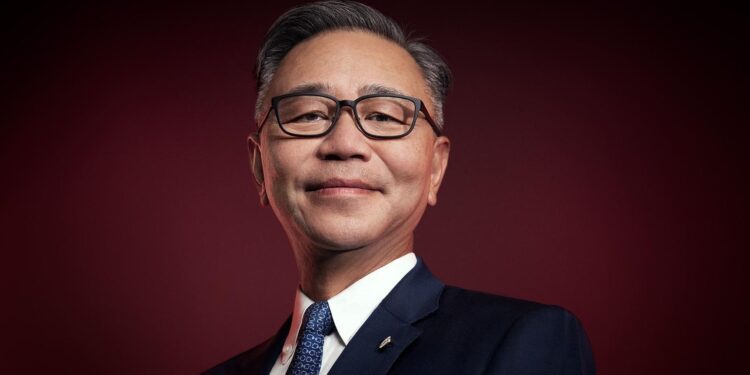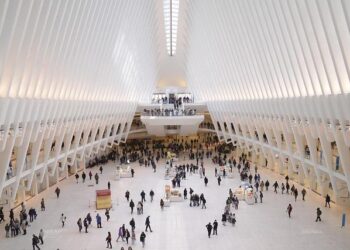Walter Wang brought his idea of using pipes instead of wells to economist Jeffrey D. Sachs, who led the Millennium Villages project, in 2006. Pictured: villagers unloading pipes for an installation in Uganda in 2011. ŌĆ£You can only service a small community by the well, but if you have piped water, you could go anywhere,ŌĆØ Wang said.
Credit: JM Eagle
Others have been more receptive to his offers, he says. JM Eagle, for instance, helped local engineers design two service lines using polyethylene pipes after HonoluluŌĆÖs Waikiki beach was forced to shut down in 2006 after a sewage line ruptured, dumping 48 million gallons of garbage into the ocean. Internationally, the company says it has donated almost 400 miles of plastic pipe to eight African countries including Kenya, Uganda and Rwanda, as part of the Millennium Villages Project spearheaded by Columbia UniversityŌĆÖs Earth Institute between 2005 and 2015 to provide access to clean water.
When Y.C. passed away in 2008, it was unexpected, despite the fact that he was 91. ŌĆ£I think he expected to live to a hundred,ŌĆØ said Wang, which meant that he didnŌĆÖt leave a will. This wonŌĆÖt happen in their family, both Wang and his wife say. About five years ago, Wang started bringing his three kids (who are now in their 20s) to the plants to talk about how they are managed. They also started discussions about a family constitution and how they feel about inheritance ŌĆō in an effort to break away from the Asian cultural tradition of not talking about succession. ŌĆ£Does the spouse need to sign a prenuptial? If there are relatives, should we hire them into the business? If we do, how should the process go?ŌĆØ he says, rattling off questions they discussed.
Wang says he has a ŌĆ£multigenerational mentalityŌĆØ when it comes to the business, to which he attributes his success. ŌĆ£IŌĆÖm not in this business for five or 10 years,ŌĆØ he tells Forbes. ŌĆ£IŌĆÖm in it for life.ŌĆØ
MORE FROM FORBESForbesPerfect Streaks: These 11 Billionaires Have Never Missed The Forbes 400 ListBy Sarah YoungForbesInside The Superyachts Of AmericaŌĆÖs Richest PeopleBy Giacomo TogniniForbesThis Ex-Shoe Salesman Built A $5.5 Billion Fortune In Aging Apartment BuildingsBy Giacomo TogniniForbesHow Palantir Became The S&PŌĆÖs Most Expensive StockŌĆöAnd Earned CEO Alex Karp A Spot On The Forbes 400By Phoebe LiuForbesWhere AmericaŌĆÖs Richest People Live: Forbes 400 2024By Monica Hunter-Hart
Source link : http://www.bing.com/news/apiclick.aspx?ref=FexRss&aid=&tid=6709071d18084d7cae538d6e44252035&url=https%3A%2F%2Fwww.forbes.com%2Fsites%2Flindseychoo%2F2024%2F10%2F11%2Fhow-a-taiwanese-immigrant-became-a-multibillionaire-supplying-america-with-plastic-pipes%2F&c=7007478113999814508&mkt=en-us
Author :
Publish date : 2024-10-10 23:30:00
Copyright for syndicated content belongs to the linked Source.












